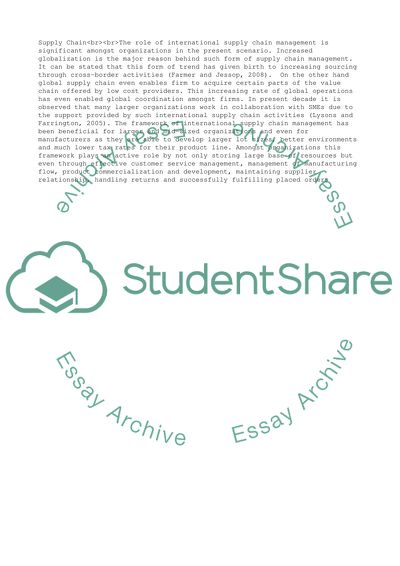Cite this document
(“Supply Chain Essay Example | Topics and Well Written Essays - 1000 words - 1”, n.d.)
Retrieved de https://studentshare.org/business/1662266-supply-chain
Retrieved de https://studentshare.org/business/1662266-supply-chain
(Supply Chain Essay Example | Topics and Well Written Essays - 1000 Words - 1)
https://studentshare.org/business/1662266-supply-chain.
https://studentshare.org/business/1662266-supply-chain.
“Supply Chain Essay Example | Topics and Well Written Essays - 1000 Words - 1”, n.d. https://studentshare.org/business/1662266-supply-chain.


